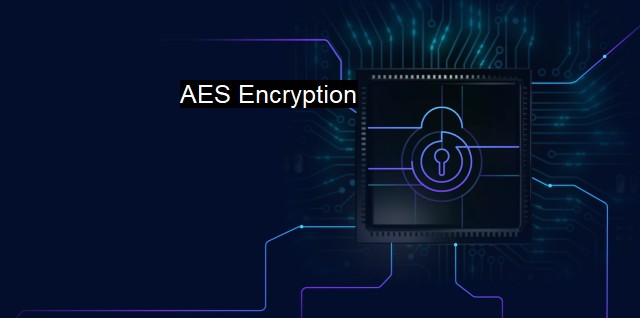What is AES Encryption?
Locking Down Your Data: Understanding the Importance of AES Encryption in Cybersecurity and Antivirus Functions
AES Encryption is a vital component in the realm of cybersecurity and antivirus. Its full name - Advanced Encryption Standard - gives a small hint to its substantial role in the digital world's backbone. Undeniably, with the increasing amount of sensitive data we generate every day, it should come as no surprise that encryption methods like AES are not just an option, but they have become a necessity.But what is AES Encryption? It is an encryption technique managed by the U.S. government that uses symmetric block cipher algorithm to encrypt data. Symmetrically means that the same key used to encrypt data is also used to decrypt it. In 2001, the National Institute of Standards and Technology (NIST) established the AES encryption as a new Federal Information Processing Standard (FIPS) publication after a five-year standardization process where 15 robust encryption algorithms were assayed extensively.
A cardinal characteristic of AES encryption differentiates it as a monstrously potent weapon in cybersecurity. It uses blocks, specifically 128 bits in size, to encrypt and decrypt data. More so, there are three possible key lengths - 128, 192, or 256 bits. What all this means is that each encryption series undergoes numerous transformations, such as substitution, permutation, mixing, or just adding more rounds of similar transformations, ultimately making the encrypted data unthinkable to penetrate. This intricate operation process allows encryption of massive quantities of data, thereby making it ideal for ensuring the secure transmission of sensitive information, document security, and data protection in sectors like commerce, health, finance, and the federal sector.
Now, how does AES encryption fit into cybersecurity? As already hinted, cybersecurity has its goal to protect information systems from damage or theft to its hardware, software, or electronic data, and from disruption or misdirection of services. This is where tools like AES - strong, reliable, and pervasive - are invaluable. Encrypting data, made unreadable unless deciphered by a unique decryption key, indicates that even if cyber threats or cybercriminals accessed the data, it would be meaningless gibberish to them. Hence, the AES encryption is an essential pillar in bolstering defenses against threats like those from the dark web or other digital platforms.
Its influence looms large in the antivirus universe. Encryption plays a critical role in the resolute efficacy vested in the antivirus software. How? Well, imagine castles and their walls; they protect the kingdom within from external intruders. Now replace the kingdom with your computer infrastructure and castles with antivirus software. This software doesn't just ward off viral intrusions - a prince charming in our analogy - it also prevents data leaks which are catastrophic especially for corporations. Antivirus packages shield data via encryption, with the AES reigning supreme due to its inaccuracy, thereby bolstering data protection against cyber-attackers lurking in shadowy digital corners.
As with all security measures, no encryption type is absolutely bulletproof. AES is an incredibly secure form of encryption and currently the state-of-the-art technology, but there's still potential for its masking capabilities to be compromised. But, therein comes the cohesion between AES and other cybersecurity tools such as antivirus software. While AES provides an impenetrable fort for the data, the incessantly updating antivirus takes care of nascent viruses and other dangerous malware, ensuring comprehensive security.
Advanced Encryption Standard is an extremely potent player in medical records protection, electronic mail confidentiality or secure voice communications, among others. Being adopted as an encryption standard across various sectors, its importance draws parallels to the lifeblood of cybersecurity and antivirus initiatives. Undeniably, with AES encryption, we've taken significant steps towards a safer, more secured digital world.

AES Encryption FAQs
What is AES encryption?
AES (Advanced Encryption Standard) is a symmetric encryption algorithm used to secure data in cybersecurity. It is widely used today due to its strength and efficiency in protecting sensitive information.What are the advantages of using AES encryption in antivirus software?
Antivirus software that uses AES encryption offers several advantages, including stronger protection against cyber attacks, improved confidentiality of data, and faster data transmission speeds.How is AES encryption different from other encryption methods?
AES encryption is different from other encryption methods in that it uses a combination of substitution and permutation to securely encrypt data. It also offers a greater level of security due to the fact that it employs a block cipher, which divides the data into fixed-size blocks before encrypting it.Is AES encryption unbreakable?
While AES encryption is considered very secure, it is not considered unbreakable. The security of AES encryption depends on the key used to encrypt the data and the length of the key. A longer key length results in stronger encryption and increased security. However, with enough computing power and time, it is possible to break even the strongest encryption methods.| | A | | | B | | | C | | | D | | | E | | | F | | | G | | | H | | | I | | | J | | | K | | | L | | | M | |
| | N | | | O | | | P | | | Q | | | R | | | S | | | T | | | U | | | V | | | W | | | X | | | Y | | | Z | |
| | 1 | | | 2 | | | 3 | | | 4 | | | 7 | | | 8 | | |||||||